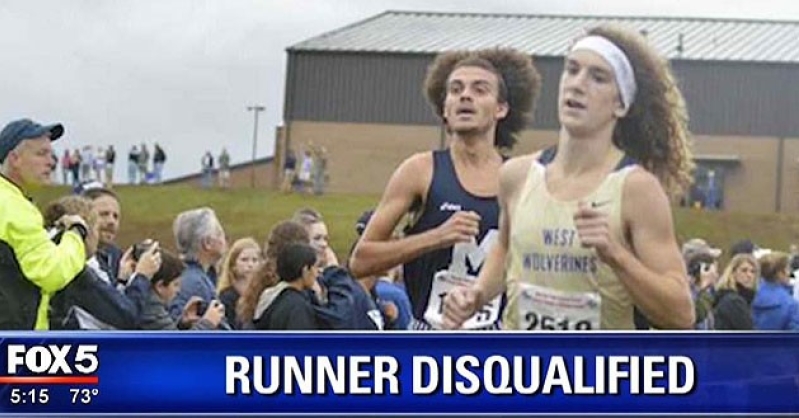
When a high school student runner was disqualified at a Georgia state track meet because he wore a headband with a Bible verse on it during the race, the situation triggered legislation about the religious expression on sports uniforms. Lawmakers stated they are trying to protect freedom of religious expression, but others are not so sure what truly would happen if new laws are passed. One is left wondering, however, if a private headband should be considered an official part of a school uniform.
Georgia High School Association representatives oppose House Bill 870, saying if it becomes law, the organization's managers would be compelled to break the rules of the group's national governing body, reports The Atlanta Journal-Constitution.
HB 870 states that under the Quality Basic Education Act, "high schools that receive state funding cannot participate in an athletic association which prohibits religious expression on the clothing of student athletes; to provide that high schools that receive state funding cannot participate in an athletic association which prohibits member schools from organizing and playing scrimmage matches, games, or other athletic competitions with nonmember schools; to provide for related matters; to repeal conflicting laws; and for other purposes."
The West Forsyth High School runner, who finished third in the state championship race last year, "was just expressing his belief in his creator," said Sen. Burt Jones, R-Jackson, the lead co-sponsor of companion legislation, Senate Bill 309. "I found that a little bit troubling."
Rep. Brian Strickland, R-McDonough, the lead co-sponsor of HB 870, said the legislation was aimed at the possibility of discrimination. If the association ever undoes its ban on any individual expression on team uniforms, he said, the bill would prohibit discrimination against the religious kind, according to the Atlanta Journal-Constitution.
SB 309 seeks to amend the initial legislation by defining the term "athletic association," stipulates that coaching staff is also involved, and would require various school administrators to agree to terms in writing prior to competitions.
Gary Phillips, executive director of the Georgia High School Association, told the Journal-Constitution the law's language would compel his organization to allow religious expression on uniforms, placing his group at odds with the National Federation of State High School Associations' prohibition against individual expression, or "illegal adornments," on team uniforms.
"It would quickly become out of control," said Phillips, who testified against the House bill Wednesday and spoke with The Atlanta Journal-Constitution on Friday.
"What if a kid wants to wear something on his arm band that says 'I love ISIS?' Under this rule, we would have no way to control that."
Phillips said the ejected runner had been warned before he competed against wearing the headband, which was adorned with a Bible verse and a poem by Ralph Waldo Emerson.
If Georgia doesn't comply with the national federation policy, he said his association could lose four seats on the national rule-making body, which would diminish the state's influence over high school sports policies.
The 398 public and 57 private schools currently within the Association are banned from playing non-association schools, meaning most private schools in Georgia, reports the Journal-Constitution. Because even informal scrimmages are forbidden, that leaves many private schools in rural areas with few opportunities to play.
The two bills would ban public high schools from participating in Association events unless the Association changes its rules to allow cross play.
Jimmy Stokes, executive director of the Georgia Association of Educational Leaders, testified against SB 309 Wednesday, urging lawmakers "to be careful about micromanaging private associations."
The former school principal and coach said uniforms are supposed to promote uniformity. Self expression on them "destroys the concept of uniform," he said.






